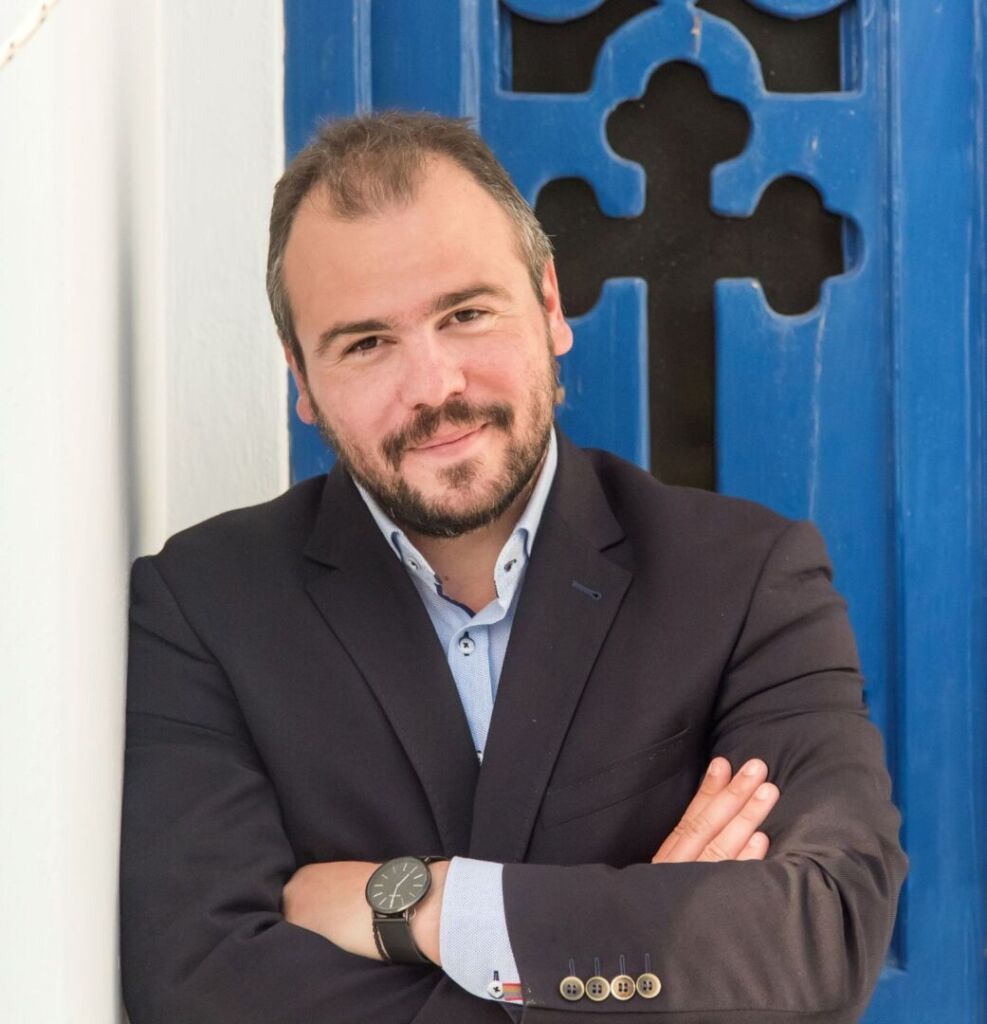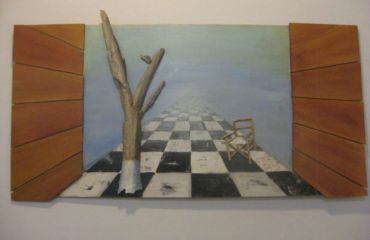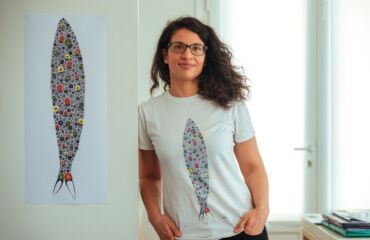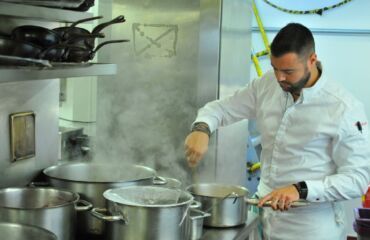Philippos Phortomas belongs to the new generation of Politicians. But Philippos Phortomas differs in many ways. It is not just the fact that he was elected at one blow as Member of the Parliament for the Cyclades. It’s not even the fact that he holds a very important CV in terms of studies and actions. Perhaps the confidence of the Prime Minister himself, who has entrusted him with the position of scientific associate in his office, is not so decisive.
As you can see, for a young scientist like Philippos who early on won positions in unions and committees fair and square, the most important thing is that every time he publicly exposes his views or publishes his speeches on social networks, the ordinary people are his warmest supporters. Although he is not forty years old, he has for the first time run as a Member of Parliament in an admittedly difficult prefecture, the Cyclades and he has been elected at one blow. A young man and true child of Tinos unfolds his vision in the interview below.
By Popi Kouzoupi
Mr. Phortomas, tell us some things about your childhood. Where were you born and raised? When do you understand that you are attracted to politics?
Philippos Phortomas: I was born in Athens, and I’m the firstborn child of our family. Ever since I was a little kid, I used to come to Tinos in the summers and literally love this place. It was my Tinian father, who nurtured me from a very early age with the traditions of my island, that contributed to this. Every time I came to this blessed place, I felt like I was in heaven. I wandered for hours at the outset of our island and gazed the horizon and the sea. I was diligent in my homework, and I was particularly attracted to history class.
In junior high school, but mostly in high school, I gradually began to realize my inclination to politics, which crystallised with my admission to the University and since then I have been actively involved through the student faction of DAP in political events and in general gradually in political life.
Tinos except for your place of origin, it is also a beautiful island. However, you, with the local gaze, what do you think the comparative advantage of the island is and what would you like to change?
Philippos Phortomas: Tinos first stands out for its people, pure, hospitable, light-hearted, who continue with the same passion their traditions and religious rituals. They continue to carve with the same avidity the marbles as our ancestors, steadily following the same styles or changing them, faithful to the example of the great Giannoulis Halepas.
My compatriots continue, interweaving the present with the past not only through the Art of Marble Sculpture, and the existing workshop, to innovate by giving prominence and promoting gastronomic, naturalistic and cultural products, supporting our place strongly and diversely, with its rich experiences and natural advantages. The villages of Tinos stand out both for their rich and sometimes eerie topiography and for their brilliant traditions.
Of course, the deep religious tradition of Tinos and by extension the religious tourism that has given a unique dimension to the island, has played a major role not only in the Cyclades area but also nationwide, demarcating its special character and sealing his identity as an eminent symbol of orthodoxy.
Tinos, to put it, the way I feel it, is the island that has managed to maintain its special cultural and religious character through time , and this is mainly due to its people. No one doubts that changes can be made for the better. First of all, there is a need for some issues to change in the way we think, in order to acclimatize with the spirit of the times and to go with the flow of change without lagging behind. Broader consensus as well as broad partnerships are needed to build the future effectively.
From the very first moment we find you on the benches of the Parliament, the Cyclades are in the spotlight. Tell us some things about your point of view for the surrounding area and although it may be a bit early, your immediate plans in order to upgrade the area.
Philippos Phortomas: From the very first moment of my election I have been able to serve my fellow Cycladic people, focusing primarily on the ways of dealing with the various problems arising from insularity. For this reason I have not hesitated, I have not stopped highlighting the island dimension on all the issues that are being discussed in the Greek Parliament but also promoting issues of significant interest for the Cyclades, faithful to my debt and consistent always to the Cycladic people. I feel pride and honor to represent this blessed place.
Very briefly I can tell you that we can achieve a sustainable tourist model, while developing new activities in rural farming. Brave steps are needed in infrastructure and in various services with health prominence (through the staffing of hospitals, health centers), then education, and all issues related to the operation of schools. Of course I could not omit the promotion of digitisation (digital insularity). As a Member of parliament for the prefecture of the Cyclades I’m never too tired, through my presence in parliament (either in the committees I participate in or in plenary), to highlight the specific requirements that the Cyclades have because of insularity.
Tourism as the heavy industry of our country has concerned you and shows the penetrating look with which you see things. What improvement rates do the Cyclades have in terms of incoming tourism numbers? What do you think are the key points that should be an attraction for visitors everywhere?
Philippos Phortomas: There is no doubt that we should clarify this: the improvement of tourism is not so much about the quantity but about the quality of the tourist product as well. What counts is not the number of visitors but the benefit, economic and developmentally resulting from the tourist flows for the islands. We look forward the greatest economic benefit, of course, for each island, but also to provide a network of services and experiences that each island can offer to the visitors, and which have to do with experiences gastronomic, naturalistic, cultural. This is sustainable tourism that suits the Cyclades.
The tourist income will increase when we serve the appropriate tourism model for our islands and even a model adapted to each island. This model, as the Minister of Tourism pointed out in the Government’s programmed statements, is mainly based on the creation of tourist experiences and quality.
The Cyclades pioneer this tourism model compared to other tourist destinations in the country but we need to expand it, optimize it as well as promote it more.
What is your opinion about thematic tourism? Gastronomic, religious, hiking tourism, what role do they hold at the moment and what should be done in these directions?
Philippos Phortomas: As I told you earlier, the model of sustainable tourism is the most appropriate model for the Cyclades, based primarily on the development of the tourist services in order to offer to visitors, gastronomic, naturalistic and cultural experiences.
Clearly some visitors pay special attention to the one category of experience or the other, e.g. walkers or diving enthusiasts, as the pilgrims of religious tourism apparently exist too. However, in my view, we need to see tourism holistically in our design, which means as a set of experiences in various thematic areas.
The term ‘thematic’ tourism somewhat artificially isolates the individual categories of experience. I would therefore prefer to talk about sustainable tourism, which includes a range of thematic experiences. In order for the sustainable tourism to bear fruit, collaborations of many professionals in each tourist destination as well as collaborations of public authorities and professionals are required, in the first place. Quality standards supervised by the authorities in charge of the place are also necessary. Quality is the central parameter in sustainable tourism. To achieve quality, information and education actions are also needed. I would like to point out and welcome the important role of the Cyclades Chamber of Commerce.
Are there any infrastructure projects, such as Tinos Airport, the water airport, the road network, which should be reviewed if we want to see, together with the amazing climate in the country, tourism on an annual basis? How important would these be even for the existing inhabitants of our islands?
Philippos Phortomas: Infrastructure projects are undoubtedly very important for improving the quality of life of residents and we promote them, seeking to ensure economic resources and speed up the relevant studies and projects. However, let me point out that the objective of ‘tourism on an annual basis’ is a more demanding and complex objective. In this direction, the new laws about the water airports passed by our Government will contribute amelioratively and developmentally. I believe that through them it is also possible for our small remote islands to remove the transport difficulties and develop their tourist product. The same of course can happen for the rest of our islands.
With regard to airports, I believe that optimisation can be made on existing airports e.g. Paros and Naxos airports, and creation of new ones as well as helipads that guarantee all the safety conditions required. In this context, I will have a meeting in the next few days with the minister responsible, Mr. Costas Karamanlis, to discuss about all the airports in the Cyclades.
How important is your relationship with the local authorities of the island? The Mayor of Tinos, who is also the same age as you, is a young and qualified man. Do you think Tinos’s baton is handed over to the new generation, so we look ahead to the future with hope?
Philippos Phortomas: I think we can, we deserve to be optimistic, because we see that a comprehensive effort is being made for projects that ensure the prosperity of the island and its inhabitants in the future. I must note that many attitudes of the past change in Tinos, in the Cyclades and the country in general. But I would like to point out that changes are not a matter of age but a way of approaching situations and of thinking about things. What is very important, in my view, is that the world has chosen, in many key positions for the country and for their government, people with an open mind and with a willingness to act!
Our Prime Minister, Kyriakos Mitsotakis, coming to the island, does not stand out from the ordinary people, but he becomes one of the locals. How important is your relationship with the ordinary people?
Philippos Phortomas: First of all, I believe that I belong to the ‘ordinary people’. I would like to believe that since I’ve been elected as a Member of the Parliament I haven’t changed. Still, I remain Philippos, the one you have met and loved. I maintain the relationships I had before the elections and extend them as long as the multiple obligations allow me to. And I continue to listen to people’s concerns, to discuss with them every time I get the chance, but also to object when I disagree. Besides, the politician must have an opinion, make his mark and inspire. And of course, on the critical issues, I take action.
In order to respond successfully and effectively to the role of the politician, you have to be with the heart and mind among the people, listen to people and give them perspective and hope, through contact.
Education and sport are areas that have occasionally occupied you. As a young person, how important are projects and decisions in these two areas? Why isn’t Greece, which is a country of arts and letters anyway, a role model for people to raise their children here?
Philippos Phortomas: To begin with, there are two separate areas. I’m just as interested in both, but I’m going to focus on education. We all note that with the Government of New Democracy and the leadership of the Ministry of Education, brave efforts are being made to fight chronic pathogens of the education system. Any attempt for reform is contrary to them. In general, a comprehensive reform should be made to the existing education system, not half-measures, with as broad consensus as possible in order for the changes qualified to be effective. More specifically, a change is needed in the analytical programs that should follow international developments in Pedagogy and be successfully intertwined with the specificities of the Greek society. On the other hand, adaptation should be made to the new era of the 4th technological revolution with developments in robotics.
All this requires the consent of those who serve the education system in our country, teachers, students and parents. The training, which is diligently promoted by the leadership of the Ministry of Education, should be carried out systematically, as well as the evaluation of teachers so that they can respond effectively to the role required by our times and the needs of our country and Greek society. I believe that Greece, with the right changes, can become a place of euphoria and well-being to grow up.
For the Cyclades, now, there are several pathogenesis due primarily to insularity. Favorable conditions should be given to those educational officers who serve in our islands, especially the inaccessible ones. New technologies should also be used to make training effective. Much can be done to make education humanly possible on our islands. I see that the leadership of the Ministry wants to innovate and effectively remove all of the malfunctions that afflict our region.
What do you think of the alternative forms of energy with regard to islands? Recently the issue of the placement of wind turbines in Tinos got publicity. What is your position on their installation on the island?
Philippos Phortomas: It is necessary: (a) to recognise first and foremost the renewable energy sources as the new form of energy of the future, which is also a one-way street, according to experts, in view of climate change and (b) to observe the conditions of installation and in particular wind turbines in each place individually. What does that mean? In the Cyclades, we have a special geographical relief, with limited land, sensitive ecosystems and settlements that are cultural heritage and need protection.
I believe that these parameters have not been studied as necessarily and should be set as specifications in the studies entrusted by the competent services to ensure that the installation of wind turbines is carried out where the minimum possible nuisance is achieved and this to be clearly documented. It is also necessary to inform citizens in detail in any case.
A tourist destination such as Tinos, is considered to be “far away” when it comes to recycling. Given that foreign visitors take it for granted, what do you think should be done to change that on the island?
Philippos Phortomas: The delay in recycling is unfortunately a phenomenon that we encounter almost all over Greece and is mainly a matter of mindset and not so much a matter of infrastructure. Clearly infrastructure doesn’t help. The conditions under which bins are placed in island municipalities (number of buckets based on population, etc.) does not help. However, in particular, more intensive information and education is needed for all on the importance of recycling. Here perhaps the integration of the environmental education course in all schools in the country would make a decisive contribution and if it is systematically taught the young children will have ecological awareness and environmental education that responds to the new data of our time. On the other hand the municipality could do a lot of work in this area through training seminars and constant awareness of the citizens.
In closing our discussion I would like to thank you for the time you spent with us and wish you success and strength in your work.
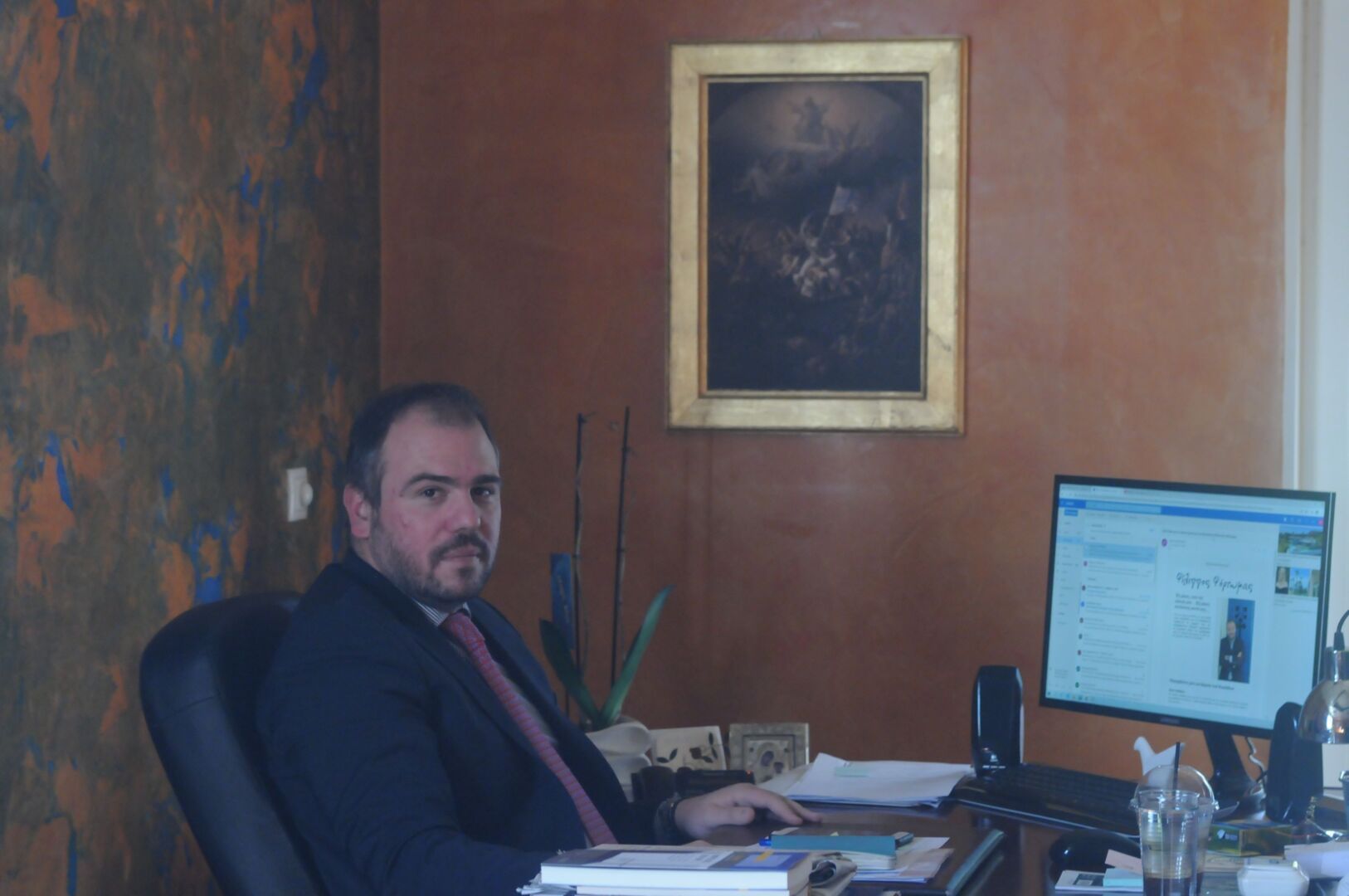
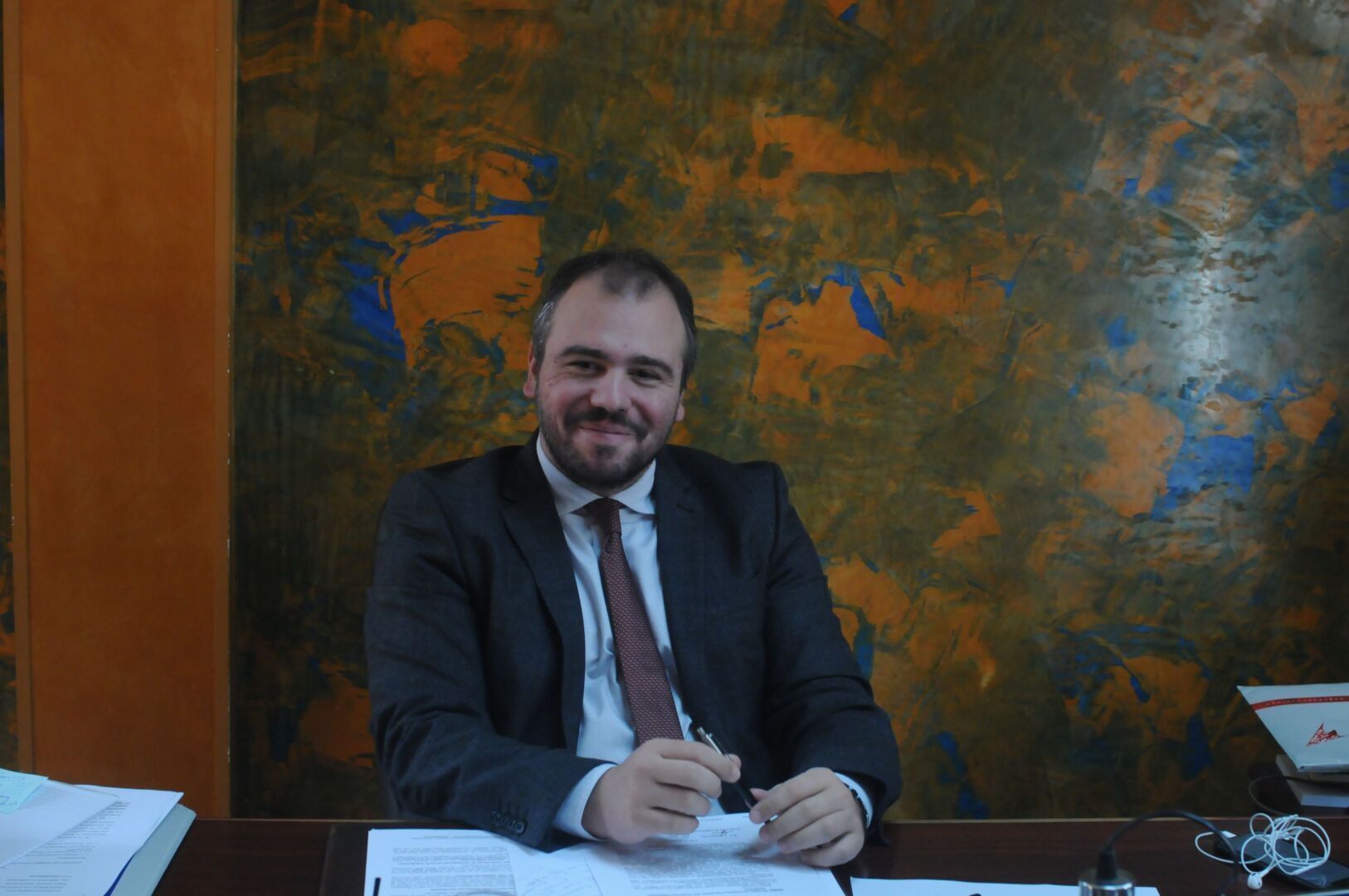
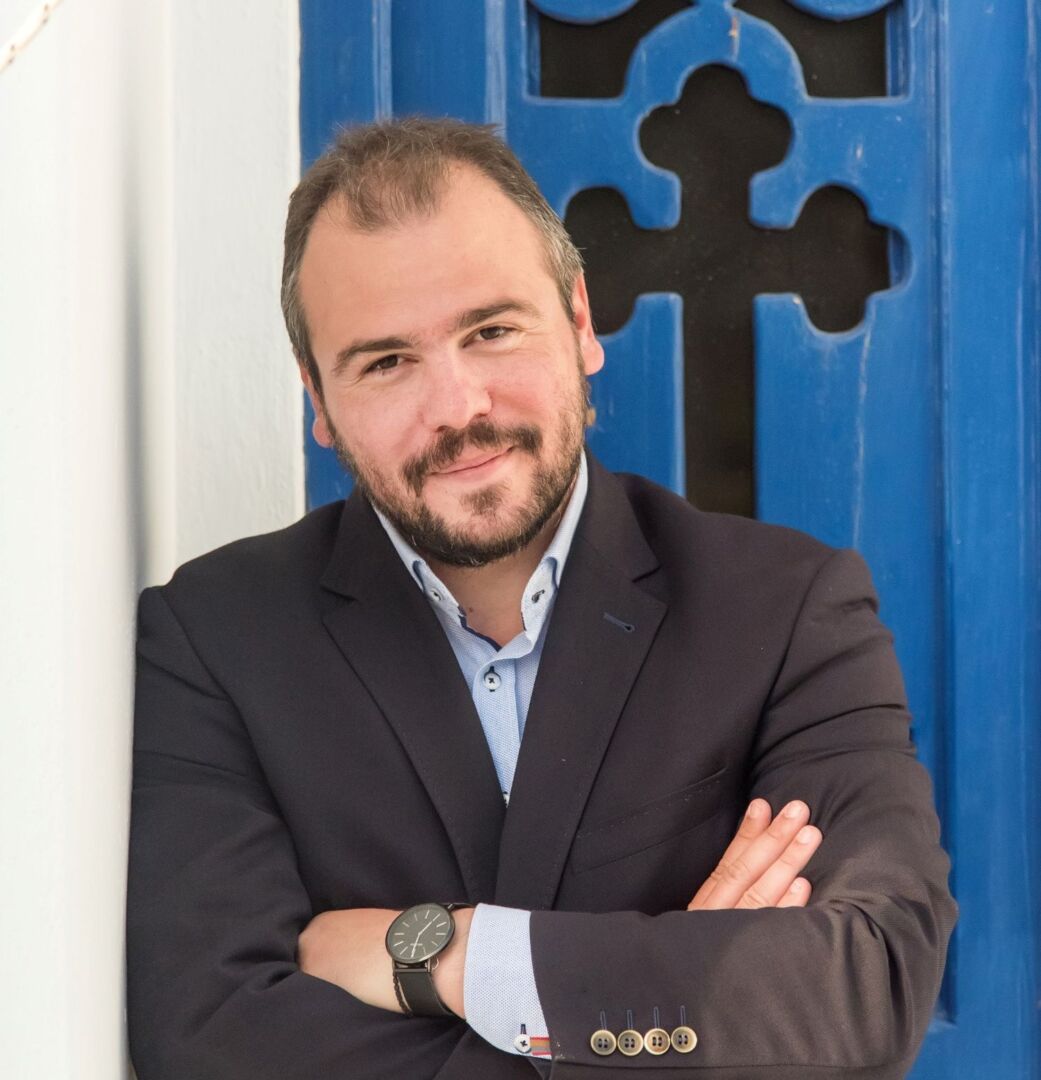

 Ελληνικά
Ελληνικά 